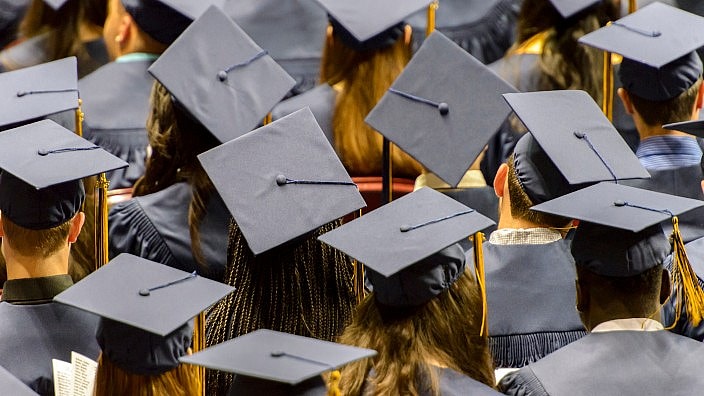
If you ask Rep. Ayanna Pressley (D-Mass.), she will tell you that America’s student loan debt crisis most profoundly affects Black students and borrowers. Pressley has been a champion of canceling student loan debt, along with U.S. Sen. Elizabeth Warren (D-Mass.), for years. They are not alone in this crusade of sorts. And their timing could not be more timely.
Rep. Cori Bush (D-Mo.) tweeted on Tuesday morning that Democrats better wise up (paraphrasing) that forcing millions of people to start repaying their student loan debt in the middle of a pandemic that is back on the rise (Omicron) and that is also in line with a cut to child tax credits is a huge economic mistake. I agree. More importantly as a Black woman who paid for her own college and law school education, I can tell you that student loan debt impacts Black women most harshly of all.
In a 2019 article titled, “Black Women Bear Largest Burden in Student Debt Crisis,” we learned that Black women have the highest student loan debt of any racial or ethnic group, according to a key study by American Association of University Women. That is not to say that Black men do not share the same burden, but as more educated professional Black women do not marry (some 45 percent of professional Black women do not marry) and have to bear the burden of helping family members on their own, having a lot of student loan debt can be financially devastating to their economic stability and future.
Why does marriage factor in? According to researchers, “assortative mating” (meaning equals partnering up) income inequality is best addressed by getting an education, as education is a strong—and strengthening—predictor of earnings. “Children from households with single, or unwed parents are more likely to have both lower educational attainment and lower income levels,” according to data from the Center for Law and Social Policy. The opposite is true in households with two college graduates. Their children’s earning power is literally multiplied by two and they do much better than households with less-educated couples. For example, according to Pew Research data, in 1970, only 37 percent of college-educated men had a spouse with a similar level of education. In 2007, that figure was more than 70 percent, according to data.
But here is the fact that plays into debt—Black Americans are less likely to marry overall, and college-educated Black women less likely than any other group to marry a man with a similar level of education. One educated person carrying the load by herself (I know this well) is difficult and creates financial vulnerabilities no matter how well you do.
My point is this—although the student loan debt crisis is serious for all Americans who still have college debt, for Black women and people of color the burden is greatest. And in the past year, Democrats, who ran on this issue, have made little to no progress with a new Democrat president and Congress as student loans payments are set to resume in January for all borrowers (me included—yes, I still have some minimal law school debt left to pay off 25 years after graduating). One statistic tweeted by Rep. Pressley in November 2020 cited that people can carry student loan debt up to age 60. That is crazy. That is more than a 30-year home mortgage, which is an asset.
This past summer, Rep. Pressley issued the following statement: “President Biden has the authority to cancel student loan debt. He has already used that authority to cancel the debt of students defrauded by for-profit colleges, and he has used it to cancel the interest on federal student loans for borrowers across the country. Student debt cancellation is a racial and economic justice issue and President Biden should act.” I agree. More importantly, she noted, Section 432(a) of the Higher Education Act grants the secretary of education legal authority to broadly cancel student loan debt owed to the federal government. Additionally, The Harvard Law Project on predatory lending concluded “that broad student debt cancellation is a lawful and permissible exercise of the Administration’s authority under existing law”.
Here’s the bottom line: Black people suffer disproportionately with student loan debt. Many of us are the first generation to go to a four-year college or get an advanced degree. We do not have parents who can help us pay for school. Or who will help pay off our loans when we graduate. We do not have the generational wealth as do our white peers, particularly at expensive private and public universities. The Biden-Harris administration has failed to honor its promises on voting rights and student loan debt, two issues that severely impact their most loyal voters—Black women.

Sophia A. Nelson is a contributing editor for theGrio. Nelson is a TV commentator and is the author of “The Woman Code: Powerful Keys to Unlock,” “Black Women Redefined.”
Have you subscribed to theGrio podcasts “Dear Culture” or “Acting Up?” Download our newest episodes now!
TheGrio is now on Apple TV, Amazon Fire and Roku. Download theGrio.com today!

